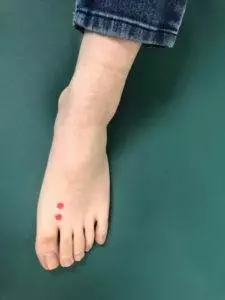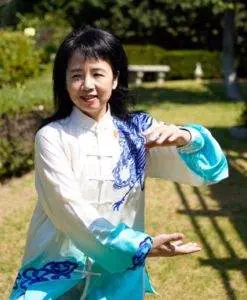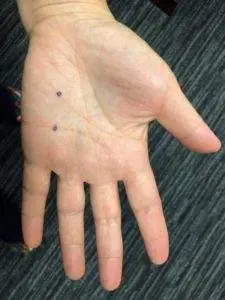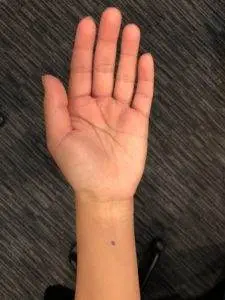-
 Art of Wellness Acupuncture & Traditional Chinese Medicine (TCM)11704 Wilshire Blvd, Suite 295, Los Angeles, CA, 90025
Art of Wellness Acupuncture & Traditional Chinese Medicine (TCM)11704 Wilshire Blvd, Suite 295, Los Angeles, CA, 90025
myartofwellness@gmail.com310-451-5522 Office Hours
MonClosedTue7:30 am --4 pmWed7:30 am --4 pmThu7:30 am -- 4 pmFri7:30 am -- 4 pmSat7:30 am -- 4 pmSunClosedOur office opens from Tuesdays to Saturdays 7:30 am to 4 pm, will be closed on Memorial day, Independent day, Labor day, Thanksgiving day, Christmas and New year.
-
Recent Posts
- How to Treat Dupuytren’s Contracture With Acupuncture and TCM
- How to Treat Nutcracker Syndrome With Acupuncture and TCM
- How to Treat Rosacea With Acupuncture and TCM
- How to Treat Perioral Dermatitis With Acupuncture and TCM
- Lymphatic Drainage With Acupuncture and TCM
- How to Treat Turf Toe With Acupuncture
- How to Treat Nerve Pain With Acupuncture and TCM
- How to Treat Watery Eyes With Acupuncture and TCM
- How to Treat Ovarian Cysts With Acupuncture and TCM
- How to Treat Dystonia With Acupuncture and TCM
- Can Acupuncture Help Bad Breath?
- How to Treat Atopy with Acupuncture and TCM
- Plantar Fasciosis Treatment With Acupuncture and TCM
- How to Protect Yourself When Air Quality Is Poor
- How to Treat Spinal Headache With Acupuncture and TCM
- How to Treat Sarcoidosis With Acupuncture and TCM
- Sign up to receive news and updates and get my free report:“The Top 10 Reasons to Try Acupuncture”

Nutrition
How to Treat Hepatitis With Acupuncture and TCM
Qineng Tan, L.Ac., Ph.D. & Xiaomei Cai, L.Ac., Ph.D.

Fever, fatigue, abdominal pain, jaundice, dark urine–these are possible signs of Hepatitis infection, although many people infected with Hepatitis show no symptoms. For some people, a Hepatitis B or Hepatitis C infection goes away on its own, but in other cases, it can cause serious liver damage, leading to chronic liver disease. Acupuncture and TCM treatment, including Chinese herbs, offer a way to help improve liver function and reduce symptoms of Hepatitis.
There are several variants of the Hepatitis virus that can cause inflammation of the liver, leading to scarring (liver cirrhosis or liver fibrosis), and in some cases leading to chronic liver problems or liver cancer. Hepatitis B (HBV) and Hep C (HCV) are the types of infection that can lead to long-term illness and even liver failure. It is estimated that over 300 million people worldwide are living with the effects of HBV or HCV infections.
There is a vaccination that offers protection against Hepatitis B and Hepatitis A, but there is no vaccine for Hepatitis types C, D, and E. People who have contracted Hepatitis A or an acute form of HBV are usually told to rest and drink lots of fluids. Medical treatment for chronic Hepatitis that lasts for more than six months usually involves antiviral medications that help slow down the spread of the virus through the body. TCM treatment for Hepatitis with acupuncture and herbs works to improve the function of the liver and related organs (spleen, kidneys, gallbladder) and to strengthen the immune system so that the body can overcome the effects of the Hepatitis virus.
What Causes Hepatitis?
There are currently five different types of Hepatitis infection, referred to as: Hepatitis A, Hepatitis B virus (HBV), Hepatitis C (HCV or Hep C), Hepatitis D, and Hepatitis E.
All of these viral infections affect the liver, causing inflammation and possibly scarring, known as cirrhosis of the liver or fibrosis of the liver.

Hepatitis A and E viruses are carried in contaminated water or food supplies. People might contract the Hep A or Hep E virus through eating something like raw shellfish that was in contaminated water, or eating food prepared by a worker who did not wash their hands properly. These variants of Hepatitis may cause an acute infection, but do not lead to chronic conditions.
HBV and HCV are spread through bodily fluids like blood and semen, and can therefore be spread through sexual contact, or the sharing of needles, or a woman may pass the infection to her baby during birth. Hepatitis is a common co-infection in people living with HIV/AIDS. People with Cystic Fibrosis (CF) can also be more prone to infections and liver problems. These more serious forms of Hepatitis can lead to chronic illness, including cancer of the liver, or liver failure, making it one of the primary reasons people end up having a liver transplant.
Autoimmune hepatitis, which has also been called plasma cell hepatitis or lupoid hepatitis, occurs when the immune system mistakenly attacks liver cells.
Top 10 Symptoms of Hepatitis
Symptoms of a HBV or Hepatitis C infection often do not show up for a few weeks, a few months, or in some cases, years later. Some people, especially children, do not feel any symptoms of Hepatitis. The most common Hepatitis symptoms include:
- Abdominal pain, pain in right side
- Swelling in liver area, swollen belly (ascites – fluid buildup in the liver)
- Jaundice, yellow eyes, yellow skin
- Dark urine, pee is dark
- Light colored stools, poop is clay-colored
- Fatigue
- Nausea
- Fever
- Loss of appetite
- Joint pain
Bleeding easily or bruising easily are also potentially signs of Hep C, as is a skin rash, or itchy skin (pruritus), little blisters, or itchy patches of skin like psoriasis. Some people have a sensation of their internal organs itching.
What Is the Treatment for Hepatitis?
If a person shows high levels of liver enzymes and still has the Hepatitis B virus in their body after six months or more, they will often be prescribed medications aimed to slow the spread of the virus and prevent further damage to the liver. There are several types of antiviral medications used to treat patients with long-term effects of Hepatitis, some of them are pills (adefovir, entecavir, lamivudine, telbivudine, tenofovir) that are taken daily for a year, or for several years. Some, known as Interferons, are given as an injection a few times a week over the course of several months or more. These medications can slow the virus in some patients, but for some people, they may not do much to protect the body from liver damage or stop the virus from spreading. These medications can cause serious side effects, including headaches, dizziness, fever, and severe depression. Acupuncture and TCM methods offer an alternative or adjunct support to help promote better liver function and boost the body’s defense against the Hepatitis virus.
What Acupuncture and TCM Can Do for Hepatitis

Hepatitis infection is closely associated with the liver, as it is the liver that shows the most obvious damage as a result of infection, often resulting in cirrhosis or scarring of the liver. But according to TCM philosophy, the other internal organs work in concert with the liver, helping it to do the job of cleaning the blood and supplying it to the rest of the body. Patients with chronic Hepatitis B infection will demonstrate symptoms that help the acupuncture practitioner recognize a particular syndrome pattern, allowing them to use acupuncture points and Chinese herbs to work on deficiencies in the liver and other organs. In TCM theory, Hepatitis infection occurs due to pathogenic forces of toxic Heat and Dampness invading the body. The infection moves through different stages, and the TCM provider will tailor treatment with herbs, acupuncture, and moxibustion to the stage of infection and specific pattern of symptoms.
TCM differentiations of Hepatitis include:
- Liver Qi stagnation – causes symptoms like nausea, poor appetite, distension of the belly or bloated stomach
- Spleen and/or Kidney Yang deficiency – associated with poor appetite, loose stools, sallow complexion, weakness, loss of muscle
- Liver – Gallbladder Dampness and Heat – causes jaundice (yellowing of the eyes and skin), fever, nausea
- Liver – Kidney Yin Deficiency – indicated by headaches, dizziness, irregular periods, stiff joints, poor sleep, irritability, and ringing in the ears (tinnitus)
- Blood stasis – accumulation of blood in the liver contributes to fibrosis or cirrhosis, also causes pain in the lower rib area, menstrual problems, PMS, and depression.
A person may be more susceptible to getting Hepatitis because of some underlying deficiencies in their Qi, and/or the virus may cause those deficiencies to manifest. The main goal of acupuncture treatment for HBV or HCV, therefore, is to strengthen the liver, spleen, and kidneys, to clear any dampness or excess heat from these organs, and to increase the circulation of blood through the systems.
Traditional Chinese herb formulations have been shown in clinical trials to help improve liver function in patients with chronic Hepatitis B.
Herbs that help improve spleen function are believed to help rid the body of the virus and allow for healing of the liver.
Diet and nutrition are, naturally, also very important in helping to strengthen and detoxify the liver and other organs. Your TCM practitioner will go far beyond the usual advice (drink fluids, avoid alcohol), and will give you specific advice for a hepatitis diet plan.

Acupuncture Near Me for Hepatitis in West LA
Chronic Hepatitis B and Hep C infections can be difficult to treat. Using acupuncture and herbs as an adjunct to conventional antiviral therapy for HBV may help to prevent further damage to the liver and improve organ function so that patients can recover from a chronic viral infection more fully. At Art of Wellness, we have over 30 years of experience providing integrative care for those suffering from chronic illnesses of all kinds.
*This article is for education from the perspective of Traditional Chinese Medicine only. The education provided by this article is not approved by FDA to diagnose, prevent, treat and cure human diseases. It should not stop you from consulting with your physician for your medical conditions. Traditional Chinese Medicine is based on Qi, which is an invisible force that usually cannot be observed by modern science. Because science focuses on testing ideas about the natural world with evidence obtained through observation, these aspects of acupuncture can’t be studied by science. Therefore acupuncture and Chinese herbs are often not supported by double-blind, randomized trials, and they are considered alternative medicine therapies in the United States.
How to Treat Musculoskeletal Pain With Acupuncture and TCM
By Qineng Tan, L.Ac., Ph.D. & Xiaomei Cai, L.Ac., Ph.D.

Do you experience unexplained pain all over the body? Muscle pain and tenderness, along with feeling tired all the time and having mood issues? Widespread musculoskeletal pain accompanied by fatigue or feeling exhausted may be a sign you have fibromyalgia. Alternative medicine methods like Acupuncture and TCM offer a way to help ease the chronic pain, sleep problems, and emotional disturbances caused by fibromyalgia.
Fibromyalgia (sometimes referred to as “fibro” or FM) is one of the most common chronic pain conditions worldwide, affecting an estimated 10 million people in the United States alone. Still, this chronic condition is still not well understood by medical science. There are no definitive tests to show whether or not fibromyalgia is the cause of pain all over the body along with chronic fatigue, so many people go on having musculoskeletal problems and hurting all over without being diagnosed or treated. There are many people who have fibromyalgia who also suffer from depression and anxiety related to the illness. Fibromyalgia can dramatically impact a person’s quality of life. While people of ages and genders can have fibromyalgia, it is much more prevalent among women.
Fibromyalgia is considered to be a syndrome: a collection of symptoms that often occur together. Fibromyalgia is associated with other conditions like lupus, rheumatoid arthritis (RA), myofascial pain syndrome, and myalgic encephalomyelitis/chronic fatigue syndrome (ME/CFS). It may coexist with these other chronic conditions, or sometimes be mistaken for one of them. However, fibromyalgia is now understood by medical professionals to be its own distinct condition with specific manifestations.
People who have RA have been shown to have an increased risk for also having fibromyalgia. But the quality and location of the musculoskeletal pain differentiates the two conditions. The pain of fibromyalgia shows up in the musculoskeletal system in the areas where there are large muscles, causing pain that may move around throughout the torso, back, hips, thighs and arms. Fibromyalgia pain is often described as a kind of “tenderness,” or when the body aches all over. “Tender points” all over the body are specific to fibromyalgia. This is different from arthritis, which generally causes swelling and pain in the joints. Both RA and lupus are understood to be caused by inflammation, while fibromyalgia is believed to be caused by a problem with the central nervous system (CNS), in which pain signals are amplified, causing extreme sensitivity and pain, even when there is no seeming reason for that area of the body to feel pain.
Some of the fibromyalgia symptoms are very similar to those of myalgic encephalomyelitis (ME), which is also known as chronic fatigue (CFS). As with RA and lupus, the two conditions can overlap. The difference is that the overwhelming symptoms of ME/CFS are related to fatigue or post-exertional malaise (PEM), while the predominant symptom of fibromyalgia is widespread muscle pain and tenderness.
Fibromyalgia seems to show up in some people due to a traumatic or triggering event. There can then be a fibromyalgia flare up due to the presence of other triggers later.
Fortunately, acupuncture, herbs, and other forms of alternative medicine that fall under TCM can approach all of the different symptoms of fibromyalgia holistically. Acupuncture is widely accepted to be effective for helping musculoskeletal conditions of all kinds, as well as neurological problems, rheumatological conditions, sleep issues, and emotional and mental health disorders.
Top 10 Symptoms of Musculoskeletal Pain

As a syndrome, fibromyalgia may manifest as any combination of a few or several of a variety of symptoms. The most common symptoms of fibromyalgia include:
- Widespread musculoskeletal pain: pain, tenderness, and/or stiffness in the muscles all over the body that may come and go or migrate from one area to another
- Fatigue, exhaustion, extreme tiredness
- Emotional and/or mental issues: depression, anxiety, PTSD
- Sleep problems, insomnia
- Cognitive issues: difficulty concentrating, memory problems, “fibro fog”
- Headaches, migraines
- Neuropathy: tingling or numbness in the hands and/or feet
- TMJ, jaw pain
- Digestive problems: irritable bowel syndrome (IBS), abdominal pain, bloating
- Bladder pain, interstitial cystitis
Other more subtle signs of fibromyalgia can include: itching all over, a skin crawling sensation (like bugs crawling on skin), extra sensitivity to smells or temperature, a tendency to shiver, or dry eyes or eye pain.
Top 5 Causes Musculoskeletal Pain Flares
The symptoms of fibromyalgia tend to come and go. Some days a person might feel almost totally fine, then other days, the fibromyalgia flares, causing more pain, exhaustion, and sometimes other symptoms. What triggers a fibromyalgia flare up?
- Hormonal changes during menstrual cycle, miscarriage, pregnancy, or postpartum
- Prolonged stress
- A sudden traumatic event, PTSD trigger, panic attack
- Changes in weather: temperature, humidity, barometric pressure
- Lack of sleep
When one of the 18 tender points of fibromyalgia is touched, it can trigger more widespread pain. These points include areas like: the front and sides of the neck, the base of the skull, the elbow, and the backs of the knees.
What Is the Treatment for Fibromyalgia?
Medical treatment for fibromyalgia typically involves a combination of medicine to alleviate pain with psychological support and lifestyle management. Drugs like Lyrica, Cymbalta, and Savella are approved for prescription for patients with fibromyalgia. Lyrica and Cymbalta are also used to treat conditions that involve nerve damage or nerve pain, like diabetes, neuropathy, shingles, while Savella works in a way that is similar to antidepressants. Other pain relievers and/or antidepressant medications may also be prescribed to help people manage pain of fibromyalgia, help them sleep better, and boost mood. All of these medications can come with unwanted side effects, and they do not help to relieve pain in every case.
People with FM pain will often receive counseling on how to manage their condition by being very careful not to exert themselves or become exhausted. Getting quality sleep and reducing stress can help to prevent fibro flare up. It can be hard for people to follow guidelines that ask them to make major lifestyle changes. Fortunately, acupuncture, herbs, and the patient support of a TCM practitioner can offer more help for people with fibromyalgia.
Acupuncture for Musculoskeletal Pain
Can acupuncture help fibromyalgia? Yes. TCM offers a comprehensive system for managing musculoskeletal pain and chronic pain, helping to heal nerve damage and restore central nervous system function, supporting mental health, relieving anxiety and depression, and addressing sleep problems. Whereas with conventional medicine, a patient might go from one doctor to another to handle all of these issues, the acupuncturist can address them all at once. The TCM point of view always takes into consideration the connection between what is going on physically with what is going on emotionally in each individual, so it is really an excellent way to help patients with fibromyalgia.

Like Western medicine, TCM recognizes that sometimes fibromyalgia can be originally caused by a traumatic event or an extremely stressful time in one’s life. Emotional upheavals cause stress to the liver, which in turn causes stagnation of blood and Qi. TCM also sees coldness and dampness as pathogenic forces that can have a profound effect on overall health. According to TCM, widespread musculoskeletal pain falls under the category of Bi Syndrome. In Bi Syndromes, cold and damp get into the body and take hold on a deep level, causing pain and stiffness. With acupuncture treatment for fibromyalgia, we seek to clear cold and damp, and restore good flow of Qi and blood throughout the body.
Acupuncture has an analgesic effect, relieving muscle pain without side effects. Moxibustion may be utilized to bring warmth to areas of the body. Cupping is another modality used to draw out damp cold and improve blood flow. Tai Qi and Qi Gong, gentle therapeutic movement practices that have been developed over 1000s of years as part of TCM, also may offer great benefits for people with FM.
A systematic review of over 400 studies of fibromyalgia treatment with TCM, acupuncture treatment was found to be effective for reducing both short term pain and long term pain.
Another review found that acupuncture and herbs worked better to reduce pain than standard medication therapy.
Top 5 Tips for Managing Fibromyalgia

Dealing with fibromyalgia and seeing significant improvement in fibro pain will probably involve making some lasting lifestyle changes. Making adjustments to your sleep habits, food choices, and your exercise routine can make a difference in preventing the next FM flare up.
- Choose a gentle, enjoyable form of exercise. Start slowly, and gradually increase the amount you can exercise over time. Walking outdoors is a great option, as are Tai Qi and Qi Gong.
- Limit or eliminate caffeine and alcohol. These substances can interfere with getting good sleep and exacerbate liver problems. Alcohol is not safe to consume if you are taking medications for fibromyalgia like Lyrica, Cymbalta, and Savella.
- Avoid sugar, which may give you a short-lived good feeling, but will lead to a “sugar crash,” and feeling more exhausted than before. Any kind of simple carbohydrates, like foods made of white flour, or bottled fruit juices, can cause highs and lows in blood sugar. Avoid sugar substitutes and food additives like MSG, which can trigger reactions in some people.
- Focus on eating complex carbohydrates, especially vegetables. These help you have a more sustained energy throughout the day. Nuts and seeds are also good.
- Warm baths with Epsom salts can be very soothing.
Getting enough sleep at night, and even resting or napping during the day, may be essential to your well-being if you have fibromyalgia. Develop habits that allow for plenty of rest and set yourself up for a good night’s sleep.
Acupuncture Near Me for Musculoskeletal Pain
Many people who have fibromyalgia choose to try alternative medicine as a way of managing FM pain. Physiological conditions that stem from emotional stress are often not resolved through the use of medications. Acupuncture and TCM have a long history of helping people to heal from emotional disturbances that cause physical pain. Acupuncture treatment works to increase the flow of energy through the body and improve the connections between the brain and nerve endings. If you or someone you know suffers with fibro, consider acupuncture as a way to find relief from musculoskeletal pain and constant fatigue.
*This article is for education from the perspective of Traditional Chinese Medicine only. The education provided by this article is not approved by FDA to diagnose, prevent, treat and cure human diseases. It should not stop you from consulting with your physician for your medical conditions. Traditional Chinese Medicine is based on Qi, which is an invisible force that usually cannot be observed by modern science. Because science focuses on testing ideas about the natural world with evidence obtained through observation, these aspects of acupuncture can’t be studied by science. Therefore acupuncture and Chinese herbs are often not supported by double-blind, randomized trials, and they are considered alternative medicine therapies in the United States.
How To Treat Dizziness With Acupuncture and TCM
By Qineng Tan, L.Ac., Ph.D. & Xiaomei Cai, L.Ac., Ph.D.

Feeling light-headed and dizzy? Maybe you feel like your head is spinning, or that the world is spinning around you? Headache, nausea, dizziness, and vertigo are symptoms that can be caused by a variety of health problems. Acupuncture and TCM offer vertigo treatment that can help relieve that sense of dizziness and nausea, or feeling light-headed and tired all the time.
Feeling dizzy is one the most common reasons that people go in for a doctor’s visit, or even visit the emergency room. Dizziness is a fairly general term that can mean anything from feeling light-headed, woozy, faint, off-balance, or unsteady to feeling nauseated or like you’re about to pass out.
Vertigo is a specific type of dizziness that refers to a sensation of spinning, as if the room around you is moving. You might feel like you’re leaning to one side, or about to fall over. It can make you feel sick to your stomach, similar to motion sickness. In popular culture, the word “vertigo” is sometimes used to mean a “fear of heights,” but that is actually called “acrophobia.” The sensation of vertigo can be triggered by looking down from above, or looking up at something very tall, but this is not the cause of most episodes of vertigo.

Vertigo causes include migraines and problems with the inner ear. The inner ear and eyes both relay information to the brain about a person’s spatial relation to the environment, so when the functioning of the eyes or ears is disrupted, it can cause a sense of imbalance, and even nausea. Migraine headaches, particularly a specific type called a vestibular migraine, can cause pressure in the head and dizziness and nausea.
Benign paroxysmal positional vertigo (BPPV) is one type of vertigo that causes short-term bouts of sudden dizziness. Benign positional vertigo is caused by the shifting of calcium crystals (canaliths) in the inner ear. This can happen due to a head injury or simply aging.
Other inner ear problems that can cause signs of vertigo include Meniere’s disease and Labyrinthitis. Meniere’s disease is a chronic disorder related to abnormal amounts of fluid (endolymph) collecting in the inner ear. The exact cause of Meniere’s is unknown, but it develops more frequently later in life. Meniere’s disease causes attacks of vertigo that can last from a few hours up to 24 hours. Like migraines with an aura, there is often a period of time during which a set of “warning symptoms” begin to occur, such as: a feeling of uneasiness, being off-balance, headache and dizziness, queasiness, hearing loss or ringing in the ears, or extra sensitivity to sound. Once an attack of vertigo hits, it can be quite severe, causing intense pressure in the ear, blurred vision, vomiting or diarrhea, cold sweats, rapid heart rate, and feelings of fear and panic. There is currently no cure for Meniere’s.
Labyrinthitis refers to inflammation of the small parts of the inner ear, or around the nerves of the inner ear that can be caused by viral or bacterial infections, such as: a flu, measles, herpes, hepatitis, Epstein-Barr, chicken pox, or childhood ear infections. Symptoms of labyrinthitis can include: dizziness, nausea, tinnitus (ringing in the ears), and difficulty concentrating.
Lightheadedness is a similar sensation to dizziness in some ways, but is usually caused by a sudden change in blood pressure or the flow of blood to the head. You have probably experienced feeling light headed and dizzy when you get up too fast from sitting or lying down. Other causes of lightheadedness include: allergies, anxiety, anemia, hyperventilating, arrhythmia, or heavy bleeding (as during menstruation).
Dizzy spells happen to everyone once in a while. But recurrent headache and dizziness should be addressed. Acupuncture and TCM have been used to help dizziness for thousands of years and offer natural solutions to the underlying causes of vertigo.
Top 10 Causes of Dizziness

Feeling light headed and dizzy, or having headache, nausea, dizziness, can occur as symptoms of a variety of imbalances. Reasons for dizziness may include:
- Inner ear imbalance, or labyrinthitis
- Meniere’s disease
- Sleep apnea, snoring
- Migraine – vestibular migraine
- Dehydration – alcohol, diuretics
- Sinus issues
- Ear infection
- Low Blood Sugar – diabetes, hypoglycemia
- Multiple Sclerosis (MS)
- Prescription Medication side effects
Dizzy spells that occur first thing in the morning are common for some people. This can be simply due to the change in pressure in the ear when you get out of bed. Waking up dizzy due to sleep apnea occurs because this condition obstructs your breathing during the night, and you may have lower oxygen levels when you wake up. Being dehydrated is another common cause of dizziness, which is exacerbated by drinking alcohol before bed. In general, drinking too much caffeine, too much alcohol, and not enough water, or taking diuretics can all lead to dizzy spells. Low blood sugar, whether due to diabetes, or simply not eating regularly enough, can also be a cause of light-headedness. Hepatitis, HBV, or HCV can also cause dizziness.
Postural orthostatic tachycardia syndrome (POTS) causes dizziness when moving from a seated or position or lying down to standing up.
Cervical vertigo, or cervicogenic dizziness, is another type of vertigo caused by the positioning of the neck or cervical spine; in this case, the feelings of imbalance and spinning may be accompanied by neck pain. This type of vertigo may happen, for instance, after a whiplash injury.
Treatment for Vertigo
The medical treatment for dizziness and vertigo depends wholly on the underlying causes for the symptoms. If a bacterial infection in the ear is confirmed, then antibiotics may be used. In cases of BPPV, a canalith repositioning procedure (CRP) is a non-invasive technique that can help the crystals within the inner ear move back into their proper place. Migraine-related vertigo may be treated with the medications typically prescribed for migraines. Anti-nausea drugs like Dramamine may be suggested. Patients suffering from cervical vertigo may be referred to physical therapy to help improve the positioning and strength of their neck/cervical spine.
Can Acupuncture Help Dizziness?

One of the central concepts of TCM is that of the root and the branches. The branches are the visible, outward signs or symptoms of a problem, while the root refers to what is going on deeper in the organ systems of the body. In the cases of dizziness and vertigo, there is deficiency in the root and excess in the branches.
Pathogenic factors involved in dizziness and vertigo are phlegm, wind, fire, and deficient Qi. When there is weakness in organs like the spleen, stomach, kidney, or heart, pathogens like wind, heat, and phlegm can take hold. The San Jiao, also known as the “triple burner,” is another important concept in TCM; one of its primary functions is to control the movements of fluids in the body so that they don’t collect and build up inappropriately. In case of vertigo, phlegm and heat develop to the point of causing stagnation and malfunctioning of the Jiao, pushing phlegm upwards in the body. An acupuncture practitioner will carefully listen and observe to discover which organ systems are out of balance, and work to strengthen those areas. For example, dizziness combined with emotional disturbances like anger and depression is a sign of too much wind or heat in the Liver. Weakness in the heart or spleen may follow a long illness or period of stress and anxiety. Too much phlegm, heat, and dampness in the stomach and spleen can result from an improper diet and too much stress.
Acupuncture and herbs to tonify these organs and clear heat and phlegm will take care of the root of the dizziness. Meanwhile, specific acupuncture points can have an almost immediate effect at relieving immediate discomfort, facilitating a natural vertigo cure.
A study conducted at a hospital in Taiwan used acupuncture to treat patients with dizziness and vertigo. The findings conclusively showed immediate improvement in symptoms.
A study of 60 patients who were admitted to an emergency room suffering from vertigo from a variety of causes, including Meniere’s and BPPV, showed that acupuncture treatment provided immediate relief of symptoms and is therefore a good alternative for dizziness due to various causes.
Top 5 Tips to Get Rid of Dizziness
Depending on the cause of the vertigo, there are different ways to manage with TCM techniques, including vertigo exercises, acupressure for dizziness, moxibustion, and foods to avoid.

Major 4 types of Vertigo/Dizziness presentation:
- Hypertension type – When a person has high blood pressure, too much liver yang, and is overheated, it can cause dizziness. For this, we use acupressure Liver points 2 and 3 on the toes.
- Qi and Blood deficiency – if a person shows signs of anemia, or has heavy periods, hemoglobin is low, or if a person has chronic conditions, or has suffered a major injury, or recently given birth, experienced major blood loss. For this we want to ensure a good diet with plenty of soups and easy to digest foods. Moxa on the back can help to strengthen the body’s Qi and produce enough blood. Qi Gong exercise of squeezing the earlobes and outer ear up and down is helpful.
- Kidney essence deficiency – this could be due to some constitutional weakness, or due to old age, or someone who tends to have chronic illness, diarrhea. The kidney essence can’t support rising essence to the head. For this, acupressure for Kidney 1 – on the bottom of the foot.
- Phlegm stagnation – when the middle jiao is not working due to stagnation of phlegm creating blockage so Qi cannot ascend. This happens when people are overweight, or have poor digestion, diarrhea. Avoid dairy and fried foods, which encourage phlegm. Moxibustion treatment to the back is helpful, and applying pressure to Stomach-36 acupressure point can help the middle jiao open up.
- Neck Pain – if a neck problem is causing a blockage, due to a neck disease or bulging disc, unhealthy cervical disks, compression, tension, and muscle spasms can block upwards energy. Exercises to encourage the health of the neck discs, loosen up the muscles and allow flow of Qi and blood up to the head. Your acupuncture practitioner will recommend neck exercises to help with this.
Acupuncture Near Me for Dizziness
Vertigo and dizziness may not be life-threatening symptoms, but they can have a big impact on your daily life. Frequently being blindsided by unexpected dizziness, spinning sensations, nausea, and headaches is unsettling and debilitating. Medications can be helpful in some cases, but they can also cause unwanted side effects. Getting to the root cause of vertigo with acupuncture and TCM will help get rid of dizzy spells so they don’t keep coming back.
*This article is for education from the perspective of Traditional Chinese Medicine only. The education provided by this article is not approved by FDA to diagnose, prevent, treat and cure human diseases. It should not stop you from consulting with your physician for your medical conditions. Traditional Chinese Medicine is based on Qi, which is an invisible force that usually cannot be observed by modern science. Because science focuses on testing ideas about the natural world with evidence obtained through observation, these aspects of acupuncture can’t be studied by science. Therefore acupuncture and Chinese herbs are often not supported by double-blind, randomized trials, and they are considered alternative medicine therapies in the United States.
How to Treat Morning Sickness With Acupuncture and TCM
By Xiaomei Cai, L.Ac., Ph.D. & Qineng Tan, L.Ac., Ph.D.

Nausea or vomiting during the first few months of pregnancy, known as “morning sickness,” is experienced by more than half of all pregnant women. Severe nausea and vomiting, or morning sickness that lasts all day or further into pregnancy–called Hyperemesis Gravidarum—is less common, but can cause health problems for both the mother and the developing fetus. Acupuncture and TCM provide a natural and effective alternative for dealing with both mild and severe morning sickness.
“Morning sickness” is somewhat of a misnomer, although nausea during the first several weeks of pregnancy is often experienced early in the day, before eating. Having an empty stomach can exacerbate the queasy feeling of morning sickness. But why is it called morning sickness when it lasts all day? As many women know, morning sickness can strike at any time of day or night, and some women feel nauseous throughout the day.
The majority (at least 70%, maybe more) of all pregnant women experience some nausea during early pregnancy. Morning sickness usually begins occurring when a woman is around 6 weeks pregnant, and goes away by about the 12th week of pregnancy, or the transition into the second trimester. However, some women will continue to feel morning sickness later in pregnancy.
Medical science has not determined exactly what causes morning sickness, although it is generally thought to be related to changes in hormones, particularly an increase in hCG, known as the “pregnancy hormone.” A recent research study found that a specific genetic sequence present in some women may account for increased nausea during pregnancy. Some researchers at Cornell University have posited that morning sickness may be an evolutionary development that prevents harm to babies in utero by keeping the mother’s diet free of potentially toxic substances. They observed that in cultures where the staple diet relies more on starches and less on meat, pregnant women were less likely to experience morning sickness.
For most women, the morning sickness that occurs in the early months of pregnancy is not dangerous to their health or that of the fetus. However, feeling nauseous a lot of time is certainly uncomfortable. Some lifestyle habits can help get the nausea and vomiting under control. Acupuncture treatment and herbs can help even more to provide relief from the daily nausea of morning sickness.
For some women, morning sickness is more than just a nuisance. Not being able to keep any food down and vomiting repeatedly throughout the day for weeks or even months on end can cause serious health issues for mom and baby. Lack of proper nutrition, dehydration, and weight loss can lead to unwanted outcomes later on, including pre-term delivery and low birth weight of the infant. Hyperemesis gravidarum requires treatment. Acupuncture help for morning sickness is a natural alternative to drugs used to treat nausea.
Top 5 Symptoms of Morning Sickness
The symptom of nausea during early pregnancy is often what first lets a woman know she might be pregnant. Feeling queasy, dizzy, sensitive to smells, an aversion to certain foods, and occasionally vomiting are the most common signs of morning sickness. The sensations can be likened to those of motion sickness, or having a hangover. Many women report having a metallic taste in their mouth, and/or more saliva, which can contribute to feeling nauseated.
Severe morning sickness is a more serious problem. Signs of hyperemesis gravidarum include:
- Vomiting 3-4 times per day or more
- Feeling light-headed or dizzy after vomiting
- Dehydration: thirst, dry mouth, not having to urinate normally
- Heart beating fast, heart palpitations
- Losing weight during pregnancy (more than 10 pounds)
Some women may be at higher risk for hyperemesis gravidarum if they are: having multiples (twins or triplets), if their mother also had severe morning sickness (genetics), or if they generally tend to have a more sensitive stomach, even when not pregnant. Stress, lack of sleep, and hot weather can all trigger more nausea during pregnancy.
Medical Treatment for Morning Sickness

Nausea and vomiting during pregnancy is challenging to treat effectively, as care must be taken to avoid drugs that could harm the mother or the developing fetus. Often women are not treated for severe morning sickness until they have become so sick and dehydrated from vomiting that they need urgent care. At this point, a woman may need to be hospitalized and treated intravenously for dehydration.
There has been a somewhat standard practice of people recommending and using over-the-counter antihistamines or antiemetics like Pepto-Bismol to help quell nausea. In a 6-year study of women with hyperemesis gravidarum, researchers found that women who had used medications like Benadryl during pregnancy were more likely to experience adverse outcomes. A combination of vitamin B-6 and doxylamine is sometimes recommended. This drug combination is sold as an OTC sleep aid. Phenothiazine is sometimes prescribed for women with morning sickness, but it’s efficacy and safety for this use has not been studied extensively.
These medicines are used because they seem relatively risk-free, but they still carry the risk of side effects, like drowsiness, headaches, dry mouth, etc. In many cases, they are not totally effective. Acupuncture and TCM herbal formulations offer relief from nausea and other pregnancy issues without any negative side effects.
How Can Acupuncture Treat Nausea?

According to TCM, Qi (life force energy) moves through the body along meridians, channels that connect the organ systems. The Chong meridian connects the reproductive organs to the brain and the heart. This particular energy channel is related to all concerns having to do with female reproductive health and gynecological conditions, including menstruation and pregnancy. Its relation to the heart means that it is also connected to feelings of anxiety, panic attacks, and palpitations.
Each woman’s experience of morning sickness is different, so a TCM practitioner will look carefully at each individual patient to determine the specific imbalances causing the nausea and address them appropriately with acupuncture and herbs.
In TCM theory, morning sickness and hyperemesis gravidarum are related to the stomach, spleen, and liver. When a woman becomes pregnant, blood and Qi are strongly directed towards the pelvic area to nourish the womb (uterus) and the developing fetus. This surge of energy will also affect the digestive organs, potentially causing stomach problems. This is more likely to happen to women who have had weak digestion previously, perhaps due to a lack of proper functioning of the spleen. Likewise, the direction of more blood to the reproductive organs can cause a decrease in Yin energy in the Liver, thus increasing Yang energy. Liver fire can also trigger imbalance in the Stomach, leading to nausea and vomiting.

A specific acupressure/acupuncture point on the wrist is especially helpful for reducing nausea. This acupoint is known as PC6, or Nei Guan, 内关, which translates as “Inner Pass.” You may have seen special bracelets or wristbands recommended to help reduce nausea due to morning sickness (or motion sickness or postoperative nausea related to opioid medications). These products are designed to stimulate this acupressure point for nausea. While applying gentle pressure to this point can certainly be beneficial for women experiencing morning sickness, acupuncture treatment that includes this point and others is even more effective.
A systematic review of published studies related to the use of PC6 stimulation for nausea and vomiting found that this treatment produces clinically effective results, not only for pregnant women, but also for patients in cancer treatment and other people experiencing severe nausea.
A randomized trial conducted in Sweden to study the use of acupuncture treatment in conjunction with standard medical treatment for women with hyperemesis gravidarum found that acupuncture was not only very safe and free of side effects, but that women who received acupuncture were able to get over their severe nausea and vomiting more quickly than women getting only the standard treatment.
A study conducted at a maternity hospital in Australia compared women who received acupuncture for morning sickness to groups receiving placebo treatment or no treatment. The women who received acupuncture reported significantly less nausea and retching.
Top 5 Tips to Help Morning Sickness

Naturally, pregnancy is a time to embrace new lifestyle habits that are beneficial to both mother and baby. Eating a healthy diet during pregnancy can be especially difficult if you are feeling nauseous. Getting enough nutrition and rest during pregnancy is vital.
- Eat plain, “bland,” warm foods. Avoid anything that is spicy, salty, fatty, fried, or cold.
- Eat smaller meals/snacks at regular intervals throughout the day, so as to avoid the stomach being empty or too full, and to keep blood sugar levels steady.
- Sip water slowly and regularly. Don’t gulp down large amounts of liquid all at once.
- Sip ginger tea, made by steeping a few slices of fresh ginger.
- Actively prioritize stress reduction. Anxiety can exacerbate the nausea of morning sickness. Take frequent rest breaks. Ask your TCM provider to show you some gentle meditative exercises like Tai Qi or Chi Gong that can help relieve stress and nausea.
Talking with a trusted healthcare professional who understands what you’re going through can be helpful for calming anxieties about your pregnancy. Finding an experienced acupuncturist who can help you through any and all of the symptoms and worries that may come up during pregnancy, birth, and postpartum care can help to ease stress and discomfort.
Acupuncture Near Me for Morning Sickness
Acupuncture is an excellent modality not only for helping to relieve nausea due to morning sickness; TCM is a holistic form of medicine that can help women throughout pregnancy. Many discomforts and concerns may come up as a woman anticipates birth. Working with an integrative health provider who has a thorough understanding of gynecology and obstetrics from both Eastern and Western medical points of view can be beneficial to the physical and emotional health of both mother and baby. At Art of Wellness, we have over 30 years of experience helping women attain better reproductive health: from painful periods, to fertility issues, through pregnancy, postpartum, and menopause.
*This article is for education from the perspective of Traditional Chinese Medicine only. The education provided by this article is not approved by FDA to diagnose, prevent, treat and cure human diseases. It should not stop you from consulting with your physician for your medical conditions. Traditional Chinese Medicine is based on Qi, which is an invisible force that usually cannot be observed by modern science. Because science focuses on testing ideas about the natural world with evidence obtained through observation, these aspects of acupuncture can’t be studied by science. Therefore acupuncture and Chinese herbs are often not supported by double-blind, randomized trials, and they are considered alternative medicine therapies in the United States.
How to Treat Bloated Stomach With Acupuncture and TCM
By Xiaomei Cai, L.Ac,. Ph.D. & Qineng Tan, L.Ac., Ph.D.

Do you feel constantly gassy or have a bloated stomach after eating? Digestive problems like gastritis or colitis can cause abdominal bloat. Stress and hormonal imbalances can also contribute to inflammation and bloated stomach pain. Acupuncture and TCM herbs can help improve digestion and relieve abdominal bloating.
Abdominal bloating occurs when gas builds up in the gastrointestinal tract, filling the stomach and/or intestines with air. This can cause the belly area to get swollen and distended. Bloating can cause an inflated belly, sharp pain in the abdomen, belching and flatulence, nausea, or a sudden strong urge to go to the bathroom. Bloating can be related to fluid retention; this is sometimes called “water bloat.”
Problems with digestion that lead to a feeling of heaviness, “like a rock” in your belly after eating, are common. People who have been diagnosed with some type of functional gastro-intestinal disorder (FGID)–like irritable bowel syndrome (IBS) or dyspepsia (indigestion)–are extremely likely to experience abdominal pain and bloating after eating, while up to 30% of all people report having bloating at least some of the time. Inflammation in the walls of the stomach (gastritis) or intestine (ulcerative colitis) can also cause bloating.
Women often feel bloated before or during their menstrual period, and female reproductive disorders like endometriosis, fibroids (leiomyoma of the uterus), and PCOS (polycystic ovarian syndrome) can cause abdominal pain and bloating.
FGIDs can be very hard to manage; it may be difficult to get a clear diagnosis or effective medical treatment. Problems like constipation, diarrhea, nausea, abdominal pain and bloating are highly subjective, and people are often made to feel like it’s normal to have these issues, or that all they need to do is avoid certain foods.
Feelings of anxiety and depression are common among people who suffer from moderate to severe bloating on a regular basis. This can become a vicious cycle, as the pain and swelling of the abdomen causes anxiety, and the physiological effects of the emotional stress trigger the bloating to happen again and again. Sometimes people dread eating meals because they are so afraid of the painful and embarrassing bloated stomach.
Digestive upsets are complex to treat because there can be many factors contributing to the discomfort. So many different conditions can cause bloating, it can be hard to get a clear handle on the true cause. This is a case when TCM methods of diagnosis offer many advantages, because a TCM practitioner will be able to study the whole picture presented by a patient and pinpoint what underlying conditions are causing gas and distension. Acupuncture and herbs can help resolve abdominal bloating and other symptoms at their root source.
Top 10 Abdominal Bloating Causes

Why might someone feel bloated and gassy all the time? Many different types of gastrointestinal disorders can contribute to a bloated belly and excess gas, as can hormonal and emotional changes. What causes abdominal bloating can be one issue or a combination of factors:
- Irritable Bowel Syndrome (IBS)
- Inflammatory bowel disease, Ulcerative colitis or Crohn’s Disease
- Gastritis, stomach ulcers, inflammation of the stomach
- Food intolerance, gluten intolerance, celiac disease
- PMS, menstruation
- Stress, anxiety, depression
- Pregnancy
- Constipation
- Liver disease
- Abdominal adhesions, or scar tissue from surgeries
Eating behaviors like eating too quickly, swallowing air while eating, or eating fiber-rich foods that cause gas like beans, can lead to bloating. Drinking a lot of carbonated beverages can lead to excess gas in the GI tract. Smoking can also be a factor. Some medications can cause bloating as a side effect, including antibiotics, oral birth control pills, opioid pain medications, medicines to relieve constipation, and even some supplements, like iron pills.
Cancers of the abdominal organs, such as ovarian cancer, stomach cancer, colon cancer, or pancreatic cancer, can also cause bloating in the belly. Gallstones or gallbladder disease, gastroparesis, kidney problems, and liver problems can all cause stomach pain and bloating.
Medical Treatment for Abdominal Bloating
Many people do not seek medical help for bloating, trying to manage it on their own with over the counter medications that promise relief from gas pain and acid reflux. Antacids only help with the kind of bloating that is caused by food, though; they don’t help with bloating related to FGIDs, hormones, or emotional stress. When a person does ask their primary care doctor or even a gastroenterologist for help with bloating, they may find that the treatment options are very limited. Doctors will usually reassure patients that gas and bloating, while uncomfortable, are not actually dangerous. Then, they will often advise that patients go on a strict elimination diet, cutting out wheat, dairy, and most vegetables and legumes. Sometimes doctors will prescribe antibiotics to alter the balance of gut bacteria. Antidepressants are sometimes prescribed to help with bloating. Conventional medical science still has a ways to go to fully understand the underlying causes of digestive problems like bloating.
Because bloating is not viewed as a disorder in and of itself, not much serious research has been done to show what types of treatments work best to get rid of bloating. TCM treatment has been shown in a randomized controlled trial, a peer-reviewed study, and a hospital-based investigation to help in relieving stomach pain due to chronic gastritis.
How Can Acupuncture Help With Bloating?
TCM offers a multidisciplinary approach to the digestive problems, hormone imbalances, and emotional upsets that can cause bloating. An experienced acupuncturist is able to use methods of diagnosis such as studying the appearance of the tongue, feeling the pulse, and asking lots of questions about how and when the symptoms occur to find the specific pattern of imbalance that is causing gastric distress.
Different presentations of digestive conditions that may cause abdominal bloating and pain include:
- Spleen/Stomach Deficiency – characterized by symptoms: chronic bloating, poor appetite, feel worse after eating, pallor, and fatigue. This type of bloating can be caused by antibiotics, too much raw or fermented food, eating disorders, a long period of illness, or chronic inflammatory disorders.
- Damp-Phlegm – symptoms include: distended stomach, nausea, acid reflux, diarrhea. This type of bloating can be caused by dietary habits that include excess sugar, alcohol, fatty or fried foods, and dairy products. Can also be related to damp environmental conditions.
- Liver Qi stagnation – common symptoms are: stomachaches, stomach gurgling, belching, and constipation. This type of bloating can be caused by stress, feelings of anxiety or anger, and irregular, emotional eating behaviors.
TCM treatment for abdominal bloating will use acupuncture and herbs to bring the stomach and liver back into harmonious function, clearing phlegm and improving digestion. Treatment will be individualized based on the underlying causes of the imbalance; if reproductive hormones are involved, then that factor will be taken into consideration when preparing the herbal formula. If mental health issues are a factor, specific points will be added to help relieve anxiety. Naturally, your acupuncturist will have some clear instructions on how to optimize your nutrition to reduce bloating.
Top 5 Tips for How to Stop Bloating

While bloating may be caused by all sorts of different factors, there is no doubt that making some changes to your eating habits will probably have an impact on how bloated you feel. What helps bloating may be different for each person’s constitution or lifestyle, so it will be very helpful to have an in-depth conversation with your acupuncture provider about what bloating diet is best for you.
- Chew your food thoroughly. Many people eat fast, and don’t pay much attention to chewing their food well before they swallow. Food is really meant to be broken down and mixed with saliva in the mouth before it moves down the esophagus and into the stomach. Skipping this important step by swallowing half-chewed food means that your stomach has to produce more acid and work much harder to digest the food before it moves deeper into your gastrointestinal tract. Eating too quickly can also easily lead to eating more than you need. It takes about 20 minutes for your brain to receive the message that the stomach is full. Chew slowly, and enjoy every bite; this will improve your digestion.
- Avoid icy cold drinks and foods. Cold liquids are shocking and unfriendly to your internal organs, both those of the digestive tract and the female reproductive organs. Constantly drinking ice-cold beverages irritates the smooth muscle tissues of the stomach, intestines, and uterus. Drink more warm liquids, which are soothing to these organs.
- Ginger tea – many of our herbal formulations include slices of fresh ginger to help soothe the stomach and GI tract. Ginger helps the body to produce more of the digestive enzymes that work to break down food, and relieves cramping in the belly. All you need to do is keep a knob of fresh ginger on hand, cut two or three slices and steep in hot water as you would a teabag. Sip anytime, but especially before meals, to help relieve gastritis pain and bloating.
- Choose foods in harmony with the season. Raw foods are appropriate in the summer, but in the winter, it’s better to eat cooked foods. Eating more bitter-tasting foods, like dark leafy greens, helps the liver and kidneys.
- Use acupressure to help relieve bloating and gassiness. Acupoints are located along the meridians and correspond to various organ systems. Applying gentle, steady, downward pressure to acupoint ST36 (Zu San Li), which is associated with the stomach, can help to relieve bloating, stomach pain, nausea, and feelings of stress. ST36 is located on the outer edge of the shin bone, about 4 finger widths beneath the kneecap.
Acupuncture Near Me for Abdominal Bloating
TCM offers a holistic approach to digestive problems of all kinds. Symptoms like abdominal bloating, stomach pain, and gassiness are usually signs that there is a deeper problem. If you haven’t been able to solve the problem of bloating with conventional medicine or dietary changes, you may be able to get help for digestive difficulties with acupuncture and herbs.
*This article is for education from the perspective of Traditional Chinese Medicine only. The education provided by this article is not approved by FDA to diagnose, prevent, treat and cure human diseases. It should not stop you from consulting with your physician for your medical conditions. Traditional Chinese Medicine is based on Qi, which is an invisible force that usually cannot be observed by modern science. Because science focuses on testing ideas about the natural world with evidence obtained through observation, these aspects of acupuncture can’t be studied by science. Therefore acupuncture and Chinese herbs are often not supported by double-blind, randomized trials, and they are considered alternative medicine therapies in the United States.